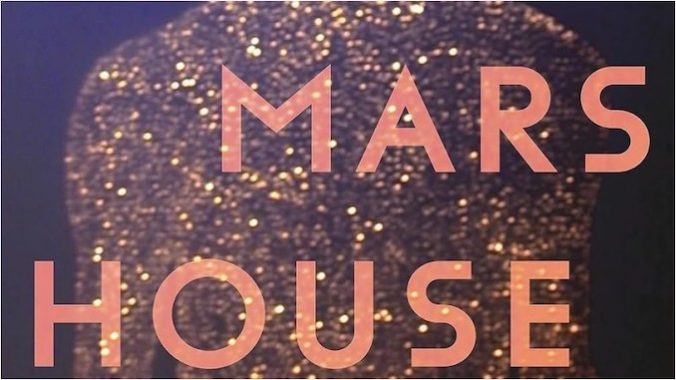The Mars House Is a Gorgeously Written, Emotionally Complicated Exploration of Our Need for Connection

Author Natasha Pulley is a difficult writer to pin down. Her books span genres, wrestle with complex themes, tease out alternate histories, and ask uncomfortable questions of ethics and morality. From The Watchmaker of Filigree Street to The Kingdoms and The Half Life of Valery K, her books are richly imagined, with lush worldbuilding and layered, multi-dimensional characters. But Pulley intriguingly embraces an entirely new direction with her latest novel, The Mars House, a futuristic blend of science fiction and romance that uses its alien setting to explore all too familiar topics that resonate with our contemporary moment, like climate change, immigration, gender ideology, and political corruption. The end result is something strange and wonderful, an utterly unique and gently beautiful love story rooted in a complicated exploration of our need for connection and a place to call home.
Set in a world only a few generations removed from our own, The Mars House follows the story of January Stirling, a principal dancer with the Royal Ballet, who is forced to flee Earth when London floods and the steadily worsening global climate crisis sends him and many refugees like him to Tharsis, the Chinese colony on Mars. Life on the Red Planet is something of an adjustment—-Martian gravity is considerably weaker than on Earth, meaning that new arrivals have stronger bones and greater physical strength than the Natural residents who are descendants of the planet’s first colonists.
Known as “Earthstrongers”, these new arrivals are forced to wear metal cages to weaken them and prevent them from accidentally (or deliberately) injuring—or even killing—Natural people. But Mars’s two-tiered society doesn’t stop there. Earthstrongers are segregated in terms of both where they’re allowed to live and what sort of jobs they’re allowed to perform. They’re often forced to live in poverty and as well as constantly pressured to “naturalize”, a dangerous medical procedure that helps acclimate their bodies to Martian gravity but cripples many in the process and greatly shortens their lifespans. Natural Martians also consider Earth-based ideas of sex and perceptible gender differences to be uncouth and primitive, using they/them pronouns and referring to everyone as Mx. They also, of course, possess the sort of political power, social status, and education that the newly arrived refugees have had little access to in recent years, making them as terrifying—in different ways—as their Earthstronger counterparts.
But when January finds himself embroiled in a very public conflict with xenophobic Martian Senator Aubrey Gale, who favors hash immigration policies that he himself stridently disagrees with, the fallout sees January in jail and broader public opinion of Gale and his ruling family tanking. To save both their futures, the two agree to an arranged marriage, a union that will buy Gale goodwill amongst Earthstrong citizens and sympathizers and will keep January from being deported or forced to naturalize. Of course, their relationship ultimately becomes something much more complicated as the two get to know each other beyond their status as symbols for their individual movements and causes.
-

-

-

-

-

-

-

-

-

-

-

-

-

-

-

-

-

-

-

-

-

-

-

-

-

-

-

-

-

-

-

-

-

-

-

-

-

-

-

-








































